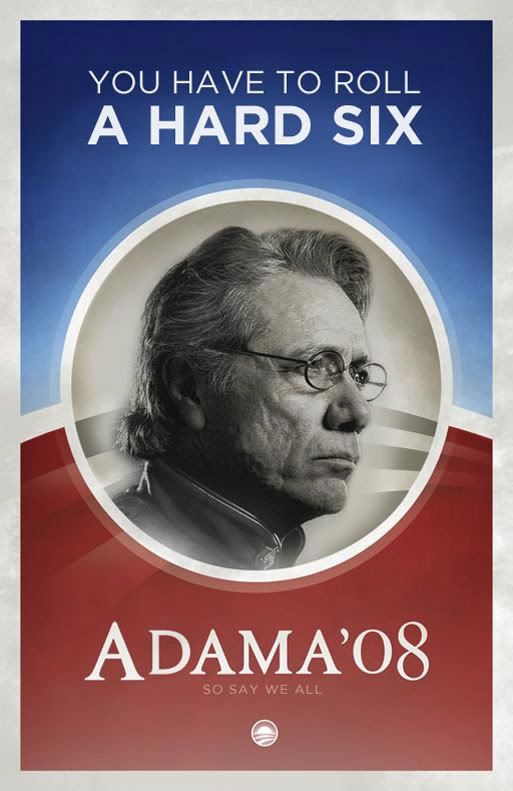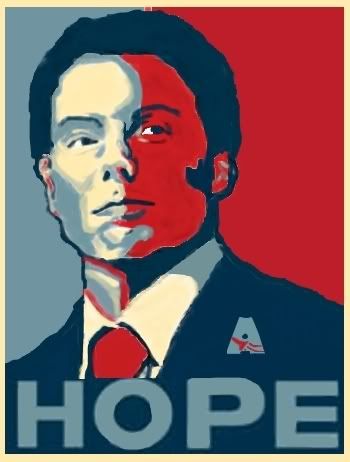They did it. The 2008 Philadelphia Phillies won the World Series.
The last time any Philadelphia team won a major-sport title, I was 10. The day of the 1983 76ers parade was also the day my fourth-grade class took a trip to the Italian Market in South Philadelphia, famous from "Rocky." I remember getting rock candy at a hole-in-the-wall store down there, and that's about it.
There was no sense that anything particularly momentous had happened: after all, just in my then-short lifetime, the Phillies had won the Series three years before, and the Flyers took back-to-back Stanley Cups in 1974 and 1975. Beyond those wins, the Eagles had made a Super Bowl in January 1981 and lost, the Sixers fell just short in the Finals in 1980 and '82, the Flyers had been defeated in the Finals in 1976 and '80.
Just less than five months after the Sixers' win, the Phillies lost the 1983 World Series in five games to Baltimore. Which sucked, but no big deal. The Flyers fell short in Stanley Cup Final bids in 1985 and, painfully, in 1987. Okay, it happens... but that was it until the Phils shook off years of sub-.500 finishes to win the 1993 pennant, and fall just short in the 1993 Series to a Toronto Blue Jays team built by GM Pat Gillick. That was an epic ride with a heartbreaking finish.
No Philadelphia team made it back for another four years, when the Flyers again lost in the 1997 FInals. By then, people were taking notice of "the drought," and theories like the Curse of Billy Penn were beginning to get some attention. The 2001 Sixers came close to upsetting the heavily favored Lakers, but didn't. The Eagles, after three straight agonizing NFC Championship Game losses, made Super Bowl XXXIX in January 2005... and came up just short against a dynastic New England Patriots team.
That loss might have cemented The Drought as Philadelphia's defining trait. Maybe it takes having grown up there and moving to New York to fully appreciate how strange the psychology of that place is. I know what's great about it: beautiful neighborhoods, fantastic restaurants, smart and funny people whose passions run deep. But its rep isn't good--and a lot of that, over the past quarter-century, became about sports. The years and years and years without a championship was one part; the legendary bitterness of the fans was the other. Never mind that sports fans in any northeastern city, and quite a few in other time zones, can be animals; Philadelphia somehow got a copyright on the boo. The bitterness was driven in no small part by how certain the fans were that The Drought would never end, that the universe had it in for them.
This year's Phillies team, constructed by the same Pat Gillick who had beaten the Phils 15 years earlier, put all that away, I hope for good. 3 1/2 games out of a playoff spot on September 11, they won 13 of their last 16 regular season games, many in spine-tingling fashion, to overtake the Mets and win the NL East. And in the playoffs, they never trailed in a series and were only tied once, after the first two World Series games. They were front-runners in the best sense.
And in front of the home fans this October, they were a perfect 7-0. I was lucky enough to go to one of those games, Sunday's 10-2 win in Game Four that put them in the driver's seat for good. I got to see it with my brother; this is us after the win.

Driving back up Broad Street after that game--Dan leaning on the horn, me waving the rally towel out the window, both of us and Annie (who was at the game and took the pic above) high-fiving strangers--was a different experience of Philadelphia than anything I can remember from there. It felt like an enormous weight was being lifted. After the suspended game Monday night, I worried that the good feelings might erode in the rain and the cold and the two-day wait to finish Game Five. But this team has a strength of character that I've never seen in a Phillies club before; I knew they were mentally tougher than I was, and I felt confident--and I typically never feel confident about these things--that they'd finish the job.
October 29, 2008. The Drought is over. I hope they're savoring this at home, as I am here.




